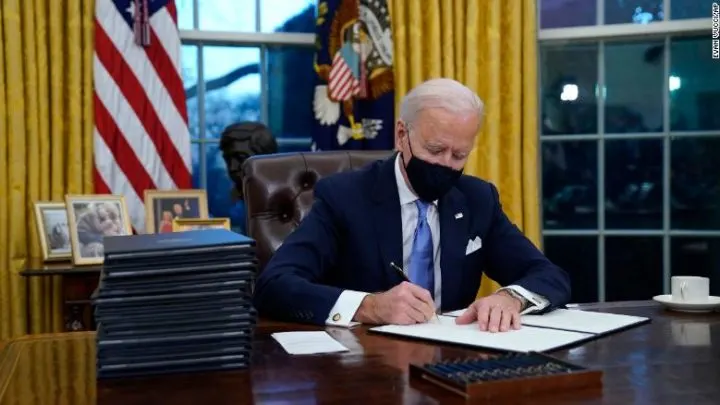In the first days of President Joe Biden’s administration, he signed a flurry of executive orders intended to relieve the financial burdens of the coronavirus pandemic. Here’s what you need to know about how President Biden’s executive orders will affect you.
Why were these executive orders issued?
According to the official White House announcement, there are several important statistics that you need to understand about the pandemic.
- More than 10 million Americans are unemployed.
- One in 10 Black workers are unemployed.
- One in 11 Latino workers are unemployed.
- Approximately 14 million renters are behind on payments.
- Approximately 29 million adults (and at least 8 million children) are struggling with food insecurity.
Furthermore, the White House has stated that “because of pervasive systemic racism and inequality in our economy, the burdens of this economic crisis are hitting communities of color and other underserved families the hardest.”
So what do these executive orders actually do to help people in poverty?
Over several days, President Biden has stated that he will be signing executive orders that accomplish these objectives:
Expanding Food Stamps
One of the executive orders will ask the USDA to expand and extend the food stamps program to more people who need help with food instability. This is expected to help 29 million Americans.
This order specifically requests:
- extension of the temporary 15% increase in food stamps
- authorization of emergency SNAP increases for the lowest-income households
- a 15% increase in P-EBT for students who are missing school meals (this would provide an extra $50 per month for families with three children)
- revision of the Thrifty Food Plan that is used to determine the amount of SNAP benefits that are needed by low income families
- a $3 billion investment in WIC
Streamline Stimulus Payments
Another executive order asks the Treasury Department to consider changing its delivery structure and prioritize issuing relief to the 8 million Americans who have not received the stimulus payments they were eligible for.
Basically, this executive order requests that the Treasury Department establish online tools for claiming payments and make sure that every household gets the stimulus money that they should’ve already received.
Stop Collections from the VA
Approximately 2 million veterans are facing collections from the US Department of Veterans Affairs for overpayments or debts. One of the executive orders requests the US Department of Affairs to consider pausing their federal collections and efforts.
Make Unemployment More Accessible
President Biden has also asked the US Department of Labor to consider clarifying that workers who leave unsafe working conditions are still eligible for unemployment insurance. That way, they don’t have to choose between keeping themselves safe and paying their bills.
Create an Interagency Benefit Coordination Structure
Another objective of these executive orders is to create “an interagency benefit coordination structure” that can help make sure that government assistance is distributed fairly and effectively.
Currently, many people who are eligible for benefits do not get the benefits they’re entitled to. For example, the White House claims:
- 20% of Earned Income Tax Credits go unclaimed
- Less than 40% of people laid off or furloughed during the pandemic actually received timely unemployment benefits
- 47% of children live in households that have trouble covering usual expenses such as food, housing and health care.
- Many small businesses in communities of color cannot access loans
Improving Wages for Federal Contractors
President Biden is also laying the groundwork for an executive order that would require all federal contractors to pay a $15 minimum wage and provide emergency paid leave to their workers.
This is all the information we have at this time. We will continue to update this article as more orders are signed and more information becomes available.
Please be aware that Low Income Relief itself is nonpartisan and not a government entity. We’re just here to help low income people across America save money and get free stuff!

